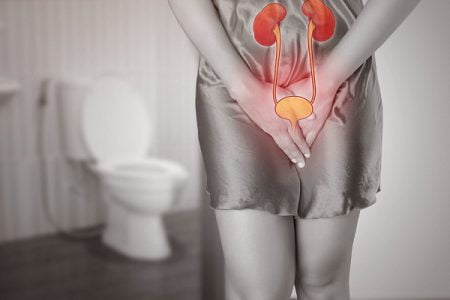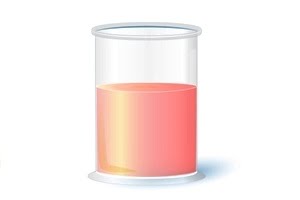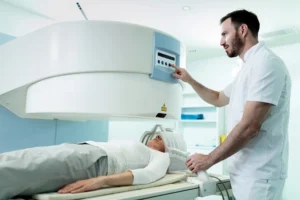Hematuria (Blood in Urine) in Kids
- Updated on: Jul 15, 2024
- 4 min Read
By
- Published on Oct 4, 2019


What is hematuria in children? What does blood in the urine of a child mean?
Hematuria refers to a condition of the presence of red blood cells in the urine. Generally, red blood cells are not present in urine because the filters in the kidney prevent blood from entering the urine. In hematuria, the filters or other parts of the urinary tract may be responsible for leaking blood into the urine.
There are generally two types of hematuria in children:
Microscopic hematuria
The amount of red blood cells is abnormal in the urine. But the amount is not large enough to see with the naked eye. This is called microscopic hematuria. The blood in urine can only be detected with a microscope. If the child is healthy, microscopic hematuria needs to be investigated only if it is present in a minimum of 3-4 urine tests over several months. But in the case of a child who has high blood pressure, chronic kidney disease, or protein in the urine, hematuria should be investigated immediately.
Macroscopic or gross hematuria
Enough blood cells are present in the urine to change the color of the urine from yellow to pink, red, or brown. Usually, one milliliter of blood can make the urine appear red.
Gross hematuria should be investigated at the first sight of blood in urine.
What are the symptoms of hematuria in children?
Identification of red urine (in case of gross hematuria) is the main symptom of hematuria. Other than this, hematuria doesn’t have any other symptoms. However, certain conditions can lead to hematuria and such conditions produce symptoms. For example:
- If hematuria occurs because of a urinary tract infection, the child may complain of more frequent urinary or burning sensations while urinating.
- If the cause is urinary stones, the child may complain of pain (which arises from the passage of the stone).
Some underlying conditions may have no symptoms at all such as:
- Vesicoureteral reflux
- Hypercalciuria (high levels of calcium in the urine)
- Renal vascular abnormalities
- UPJ obstruction
- UVJ obstruction
- Tumors
What causes hematuria in children?
There are many different causes of hematuria in children. Some of them involve the urinary tract while some do not.
Causes that involve the urinary tract are:
- Menstrual bleeding
- Strenuous exercise
- Irritation of the urethra
- Trauma
- Certain medications like aminoglycosides, aspirin, chlorpromazine, cyclophosphamide, diuretics, penicillin and Thorazine
Some causes that do involve the urinary tract are:
- Urinary tract infections
- Vesicoureteral reflux
- Kidney or urinary tract stones
- Hypercalciuria
- Trauma to the urinary tract
- Ureteropelvic junction (UPJ) obstruction
- Ureterovesical junction (UVJ) obstruction
- Vascular anomalies
- Kidney or bladder disease
- Genitourinary tumors
How is hematuria in children diagnosed?
The child’s doctor may recommend any of the following studies to diagnose the condition:
Urinalysis
Under a microscope, the urine of the child is checked for red blood cells, white blood cells, bacteria, protein, and clumps of damaged cells.
A child with microscopic hematuria and no visible symptoms will be asked to retest the urine several times over a few months. If a child’s hematuria is ongoing (persistent), the next step is to find the cause. The child’s medical history and physical examination are conducted. The child is examined for:
- Puffiness around the eyes
- Joint pains or swelling
- Pale skin
- Skin rashes
- High blood pressure
- Flank pain
Blood tests
Blood tests are done to check kidney function, along with tests for Glomerulonephritis.
Urine culture
A urine culture is done to check for bacterial growth. This test can find and identify the germs that cause a urinary tract infection (UTI).
Cystoscopy
It is an examination in which a scope is inserted through the urethra to examine the bladder and urinary tract.
Renal bladder ultrasound
A renal ultrasound is a safe and painless test. This test uses sound waves to make images of the ureters, kidneys, and bladder.
Intravenous pyelogram
It is a kind of special x-ray of the kidneys, ureters, and bladder that shows how well the kidneys drain urine.
Renal biopsy
Renal biopsy is done in rare cases only. This examination involves the removal of a small sample of kidney tissue through a needle and the sample is examined in the lab.
How is hematuria in children treated?
A child’s pediatric urologist determines the appropriate treatment for the child based on the underlying cause of the hematuria.
- If no cause is found, the child is closely monitored because sometimes blood in the urine goes away on its own.
- Hematuria caused by urinary stones is treated by removing the stones.
- Hematuria caused by urinary tract infections is treated with antibiotic therapy.
- Hematuria caused by very large kidney stones is treated with high-energy laser therapy.
- Treatment with medications is recommended to help control high blood pressure, kidney inflammation in the kidneys and high levels of protein in the urine
What are the complications of hematuria in children? Is it dangerous to have blood in urine?
Children with hematuria may suffer from the following conditions. Some of them may not be too worrying, but sometimes the complications could be serious and dangerous. Blood in urine may not always be a cause to worry, but you should contact your doctor without delay if you see traces of blood in the urine or experience any other symptoms.
- High blood pressure (hypertension)
- Headaches
- Vomiting (being sick)
- Blurred (fuzzy) vision
- Kidney inflammation (glomerulonephritis) or kidney infection
- Kidney stone
- Prostate infection or swelling
FAQs
Is blood in urine common in children, and when should I be concerned?
While it can occur, persistent or recurrent blood in a child's urine should prompt a visit to a pediatrician. It might indicate an underlying issue that needs attention.
Can urinary tract infections cause blood in a child's urine?
Yes, UTIs are a common cause of hematuria in children. Timely diagnosis and treatment of UTIs are essential to prevent complications like kidney infections.
Are there specific risk factors for hematuria in kids?
Factors like a family history of kidney issues or frequent urinary tract infections can increase the risk of hematuria in children. Identifying and managing these factors is crucial.
How is hematuria in children diagnosed?
Diagnosing hematuria in children involves a thorough medical history, physical examination, and urinalysis. Additional tests may be recommended based on the initial findings.
Can hematuria in children be a symptom of a serious health condition?
It can be a sign of underlying issues, ranging from urinary tract problems to kidney conditions. Prompt evaluation by a healthcare professional is important for accurate diagnosis and treatment.












